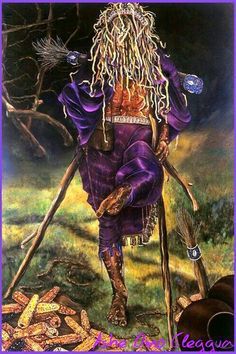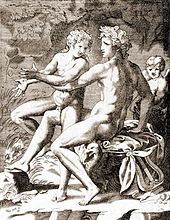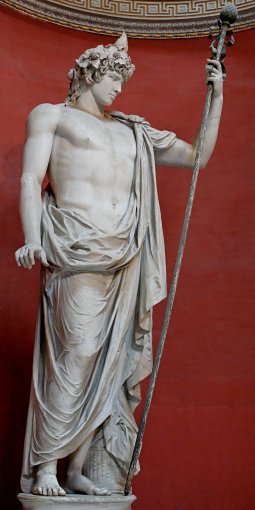Alan Lessik's Blog, page 5
July 11, 2016
“Lessik writes from the heart…this novel is not only entertaining but is one that will stay with us for a long time after closing its covers”
Amos Lassen’s review of the Troubleseeker.
Antonio is a native-born Cuban who faces his homosexuality in Cuba after the revolution and then in America. Alan Lessik tells his story using the ancient tradition of odyssey with Hadrian, the ancient emperor of Rome and demigod as his narrator and in the tradition of the “Santeria”, a syncretic religion that grew out of the slave trade of Cuba. Lessik brings the traditions of Santeria to classical Greek traditions of mythology and then uses them to present Antonio’s quest for love and freedom. For me, this is a special treat in that as I seldom, if ever, have the pleasure of reading a contemporary story told in classical style and it works perfectly. Therefore we can classify this as a modern/gay Cuban Santeria (which has really taken hold in Cuba recently. It emerged from the shadows of Cuban society when the country once again regained the right to practice religion. It is now practiced openly and all societal levels. It is uniquely Cuban and quite a dynamic way of worship) as well as a modern retelling of the Odyssey.
I learned here that the title “troubleseeker” is actually the translation of the name Odysseus and the plot of Lessik’s story is based upon and inspired by his partner, Rene Valdes Lopez. He brings together Hadrian’s search for redemption with Antonio’s story as he left Havana via the Mariel Boatlift, was detained in Wisconsin and then lived through the AIDS epidemic in this country as well as the technological revolution we have experienced here.
Lessik writes from the heart and it is easy to understand this since he is writing indirectly about the man he loves. He also takes risks in using the style that he does and in his first novel. “The Troubleseeker” is a beautiful look at love and at a male Cuban as he experiences great change in both his life and the life of his country. We actually go inside Antonio’s heart and see the love and emotions that rest there. I do not know how many writers would be able to write in this manner. Lessik lets us share not only the life but also the love of Antonio and it is a beautiful experience.
We have not really had much access to gay life in Cuba and to have this book is very special. I love that we have this novel that is not only entertaining but is one that will stay with us for a long time after closing its covers.
There is also historical value here. In addition to reading about post-revolutionary Cuba, we get a look, once again, at the devastation of the AIDS epidemic in this country. I, of course, was reminded on another gay Cuban— Reinaldo Arenas whose life was one of sexual pleasure and a way to gain power for himself and deal with his sexual identity.
Lessik gives wonderful descriptions and tells a story that pulls us in and keeps us turning pages. We are entertained, we are educated and we are given a great deal to think about. The question once again arises as to how a god could create something so terrible as AIDS—the same question that we ask about the Holocaust.
“The Troubleseeker” by Alan Lessik— A Contemporary Odyssey


July 7, 2016
The Troubleseeker Now Available on Amazon
June 6, 2016
The Troubleseeker: “With a soul-full daring to take risks, Lessik pulls us to witness the full heat of life and love inside the human heart.”
“Alan Lessik’s The Troubleseeker is an extraordinary novel and a deeply moving expression of love. Gathering its beautifully numinous mythic and cultural materials, the book deftly tells the story of our hero’s journey, a gay Cuban man in the midst of life and historical tumult. With a soul-full daring to take risks, Lessik pulls us to witness the full heat of life and love inside the human heart.”
Tim Miller, Performer and author of Body Blows and 1001 Beds.
I am honored to share this review from Tim Miller. His performances and storytelling have been powerful commentaries on gay lives since 1981. He was one of the NEA four in 1990, a group of performance artists who grants were vetoed by the conservative and controversial NEA chair. An activist, keen observer of human behavior and a funny, poignant and honest man, Miller is willing to show his/our vulnerabilities while celebrating the lives of all members of the LGBT community.


June 2, 2016
“The Troubleseeker is an engrossing read…with a wonderful overlay flavoring of the Caribbean…
“Alan Lessik combines several unlikely fictional elements and an unexpected point of view in this auspicious debut novel. But it pays off: The Troubleseeker is an engrossing read about one gay man’s life-voyage that manages to be fantastic and yet quite real, with a wonderful overlay flavoring of the Caribbean that you can almost taste.”
Felice Picano, Author
I am honored to share this review by Felice Picano. As a founding member of the Violet Quill in 1980, he and others began the gay literary movement. Due to their efforts, gay and lesbian literature became its own genre, and LGBT presses and imprints supported these voices that were missing from the literary canon. His novel, Like People in History, showed me how important it was to see our lives in print.


May 21, 2016
The Troubleseeker: A moving human chronicle that both entertains and lingers in our hearts.”
The first review is in…
“Alan Lessik’s The Troubleseeker succeeds on several fronts: as a passionate gay story that documents the devastation caused by AIDS in the epidemic’s early days; as a vivid depiction of post-revolutionary Cuba leading to the disastrous Special Period; and as a clever retelling of myth where the gods of the Greek pantheon and those of Santería mingle, compare notes, and join forces. The compelling tale of Antinio, the protagonist, in some ways evokes the life and times of the great Cuban writer Reinaldo Arenas: a life where sex is a site of pleasure but also a means for empowering self-expression and identity. Lessik’s writing is rich in descriptions, by turns poetic, and delivered by a narrator whose own captivating story lures us in like the Siren’s call. A book you won’t want to stop reading, The Troubleseeker offers the best that literature can give: a moving human chronicle that both entertains and lingers in our hearts.”
—Elías Miguel Muñoz, author of the novels The Greatest Performance, Brand New Memory, and Diary of Fire
May 18, 2016
Babalú Ayé and Apollo
Little did any of us know to whom Ricky Ricardo was singing on I Love Lucy. It is hard to imagine now that a Cuban singer with a thick accent would be broadcast driving himself into a trance-frenzy, ripping off his tie and staring intently above as he he saw something no one else did.
The song was Babalú named after the powerful Santería orisha or god more formally know as Babalú Ayé. He is the orisha of disease and the curing of disease. Traditionally he was the orisha of smallpox and by the 80’s he became the god of AIDS and now he has also taken on ebola.
He is a complicated god. He is not immune to human disease and his face is pockmarked by smallpox and he walks with a crutch. Yet at the same time, he can cure disease and as quickly he can inflict it on others.

As Santería in Cuba has been syncretized with Catholicism, he is also know as St Lazarus.

His Greek compatriot, Apollo, also had the same attributes of spreading and curing disease. His specialty was the plague. In the Iliad, Apollo shot plague infested arrows into the Greek encampment. The picture below shows Apollo with Hyacinthus, an athletic Spartan prince who was one of his many lovers. The were playing Frisbee together when a jealous god blew Apollo’s discus off course hitting Hyacinthus in the head. He immediately died and filled with remorse, Apollo created the flower out of his blood.

As hot and sexy as he was, Apollo was a dangerous guy to hang out with. He gave another lover, Cyparissus, a javelin as a present. Cyparissus accidentally killed his favorite deer one night and he was so remorseful (remorse is big in Greek tragedy, although this may be the only deer remorsefulness in history), that he asked Apollo to let him shed tears forever.  Clearly this was a special deer with whom he spend many a night. Apollo turned Cyparissus into the cypress tree which year round keeps its leaves in the shapes of tear drops.
Clearly this was a special deer with whom he spend many a night. Apollo turned Cyparissus into the cypress tree which year round keeps its leaves in the shapes of tear drops.
A third lover, Leucates, threw himself off a rock when Apollo tried to carry him off. Finally, when his lover Carnus was killed, in revenge, Apollo struck the Dorians with plague which eventually died down after they began a cult to Apollo Carneius.
Why a god would both create and heal of disease is one of the many questions answered in The Troubleseeker.


May 11, 2016
The Lovers–Hadrian and Antinous

A true story. The Roman Emperor Hadrian took a young lover named Antinous. While such relationships were common in Rome and Greece, the seriousness of their love was unusual for the time. The Senate whispered loudly of the unseemliness of the affair while Hadrian traveled extensively with Antinous around the empire. When they were in Delphi, the Oracle told Hadrian that “he would become the most famous and powerful Emperor of all time, if he lost the thing he loved the most.”
Although a Roman, Hadrian had a thing for the Greeks. He brought the Greek beard back in style, promoted the Greek language and rebuilt the ancient Greek temples. He re-instituted the Roman baths as same sex and conducted much of this business there.
On a trip to Egypt, Antinous drowned in the Nile. One story is that Antinous knowing that he was what Hadrian loved the most, sacrificed himself. Another story is that Hadrian’s men knew this and threw Antinous overboard to get to the same end.
The chronicles of the time stated that “Hadrian cried like a woman” upon hearing of his lover’s death. In his honor, Hadrian deified the young man and decreed the development of what became a very popular cult around his worship. He filled his temples and a new city on the Nile called Antiniopolos
with thousands of statues of the beautiful young man.

Rumors at the time in the Empire declared that there were sacred nights in the city with drunken revelries and sexual orgies.
While he was on a roll, Hadrian dedicated a new constellation (now part of Aguila, the eagle)

and put Antinous on coins of the realm, the only non-emperor to appear on Roman coins.

The city was active until about the 10th century. The constellation remained on charts until 1930 when it deemed inappropriate for a gay icon to be represented in the skies.
Oscar Wilde popularized Antinous in The Young King, The Sphinx and The Picture of Dorian Gray. Antinous now has his own website—http://www.antinopolis.org/life.html
In The Troubleseeker, which begins in Cuba in 1962, the hero is named Antinio and his story is narrated by demigod Hadriano.


April 29, 2016
The Troubleseeker-A Guide to the Characters
Narrated by the ancient Roman Emperor and demigod Hadriano, The Troubleseeker weaves Cuban-Santería traditions with classical Greek mythology to depict the hero Antinio and his quest for freedom, identity, and love.
Santería is the religion and the set of beliefs that the slaves from Yorubaland in present day Nigeria brought with them as they were transported against their will to the New World. In Cuba and Puerto Rico, their religion is known as Santería, in Haiti it is called Voudu and in Brasil it is Candomblé. Like the Greeks, Santería has a pantheon of gods, called orishas, each with their own powers and/or set of responsibilities.
Each week until publication in September, I will highlight different characters from the novel. To whet your imagination and feed your anticipation, here are the many of the characters waiting for you will soon discover.
The Gods
Aganju—Santería orisha of the mountains
Apollo—Greek god of the arts, of light and healing
Athena—Greek goddess of wisdom, courage, law, and justice
Babalú Ayé—Santería orisha of disease and healing
Changó—Santería orisha of wind, hurricanes, and thunder
Elegguá—Santería orisha of highways and crossroads
Hera—Greek goddess of women and marriage
Hermes—Greek god of travelers, thieves, and merchants
Obatála—Santería orisha, creator of the earth
Ochún—Santería orisha of love and beauty
Oko—Santería orisha of food
Olokun—Santería orisha of the ocean bottoms
Oyá—Santería orisha of change
Ozain—Santería orisha of forests
Yemayá—Santería orisha of earth and sea, mother of all orishas
The Demi-Gods
Hadriano—Hadrian, Roman Emperor, 117–138 AD, deified after his death
Antinous—lover of Hadrian, 111–130 AD, deified after his death
The Humans
Akos—asylum seeker in Cuba, judge of the dead in the Underworld
Alethia—block leader in Cuba, from the Greek word meaning truth
Anticlea—mother of Antinio, twin sister of Erastos, from the Greek tale The Odyssey, meaning without fame
Apolion—a bully in Cuba, from the Greek word meaning destroyer
Archon—an immigration official in Minnesota, from one of nine ancient Greek magistrates
Atropos—third lover of Antinio, from the third Greek Fate, who cuts the thread of life
Avis—Antinio’s aunt in Cuba, from the German word meaning refuge from war
Boreas—a lawyer in Minnesota, from the Greek word meaning the north wind
Brontes/“Ciclope”—a mill superintendent in Cuba, from the giant, one-eyed tribe in The Odyssey
Calypso—a proctectress in Cuba, from the Greek nymph in The Odyssey
Circe—Antinio’s wife, from the Greek sorceress in The Odyssey
Cloto—Antinio’s first lover, from the first Greek Fate, who spins the thread of life
Diotima—Antinio’s friend at the hospital, from the name of the Greek oracle
Dr. Paean—Antinio’s doctor, from the Greek physician of the gods
Erastos—Antinio’s uncle, from the Greek word meaning an early disciple
Erato—Antinio’s best friend, from the Greek muse of love and erotic poetry
Euterpa—a cello player, from the Greek muse of music
Fineo—Antinio’s friend, from Phineus, Greek blind seer who revealed the path to Jason
Icario—Antinio’s twin son, from Icarus, a boy who flew too close to the sun
Laquesio—Antinio’s second lover, from Lachesis, second Greek Fate, who measures the length of life
Minos—A hospital doctor, from the judge of the dead in the Underworld
Oydis—Antinio’s coworker, from the Greek goddess of good luck
Philippides—guard at the Pergamon in Berlin, from the courier who ran the original marathon
Polideuces—Antinio’s twin son, from Pollux, Roman twin, meaning very sweet
Pothos—Antinio’s lover, from the Greek god of sexual longing
Theron—a gay journalist in Minnesota, from the Greek name meaning hunter
Tiresias—prophet of Apollo, a man born to anger the gods
Tityus, Tantalus, Sisyphus—hospital patients, from the tortured mortals in the Underworld
Tyro—asylum seeker in Cuba, from a heroine in the Underworld
Volodya—a Russian soldier in Cuba


June 22, 2015
Coming Soon–The Troubleseeker
I am very excited to announce that my novel, The Troubleseeker will be published by Chelsea Station Editions this coming year. The Troubleseeker is a modern gay Cuban-Santería retelling of the Odyssey story. The title itself is the English translation of the name Odysseus and the story was inspired by the life and adventures of my partner René Valdes. Narrated by Hadriano, the ancient Roman Emperor, it mixes Hadriano’s millennial long search for redemption with the story of Antinio from his home in Havana to the Mariel Boatlift, detention in Wisconsin, the beginning of the AIDS epidemic through the tech revolution on the West Coast.












